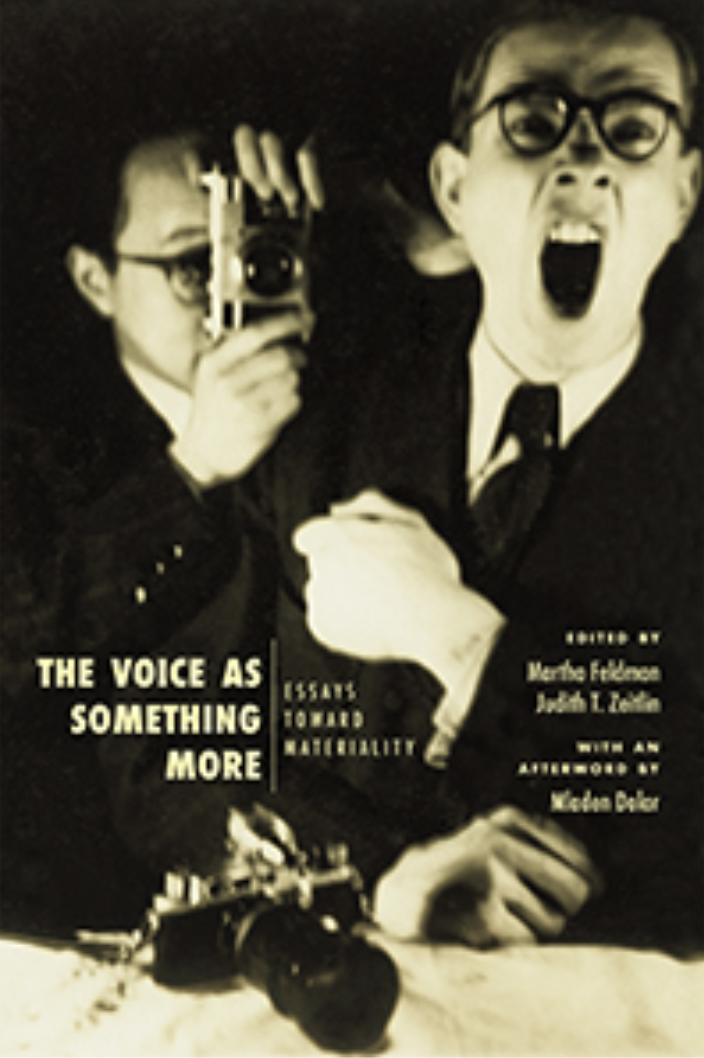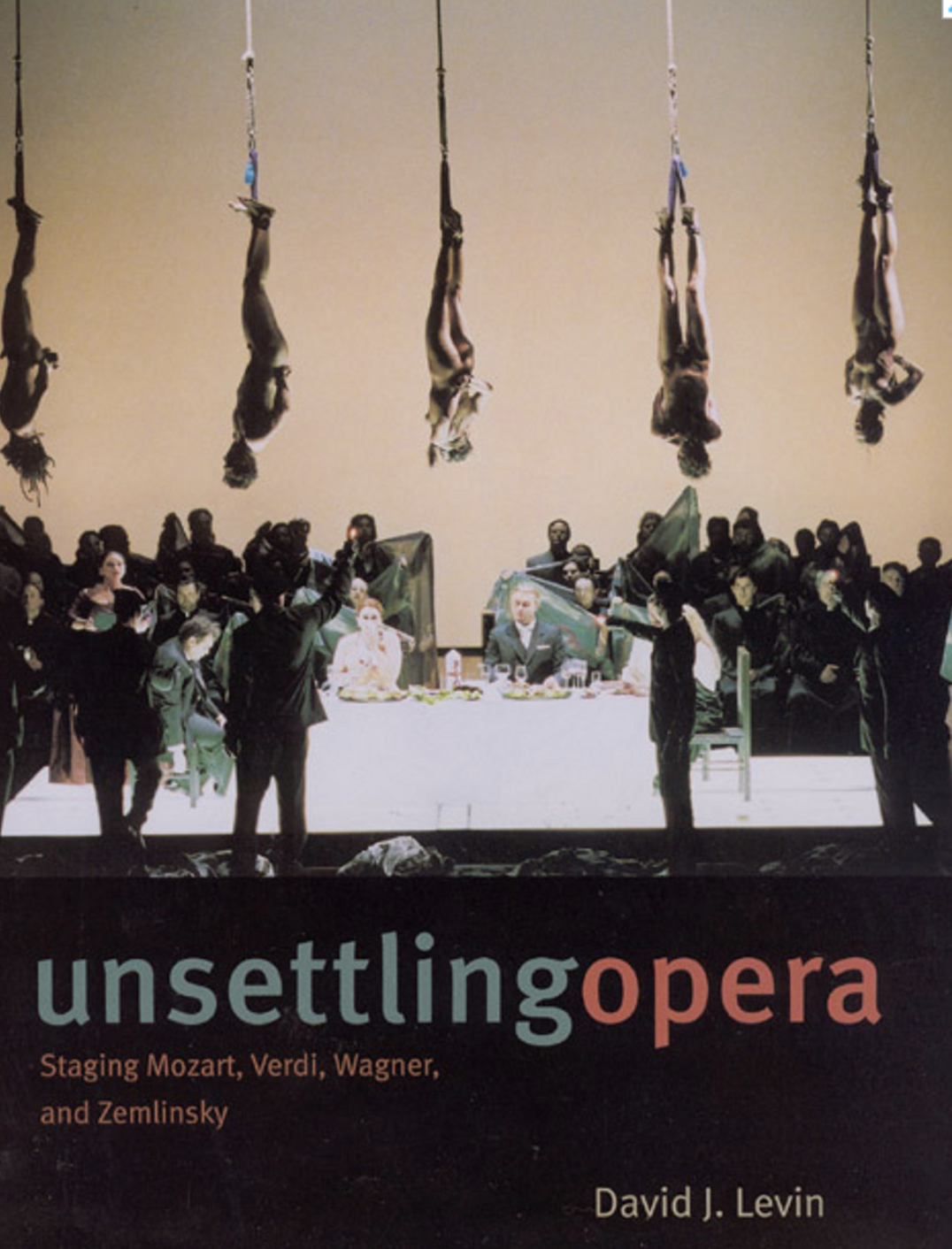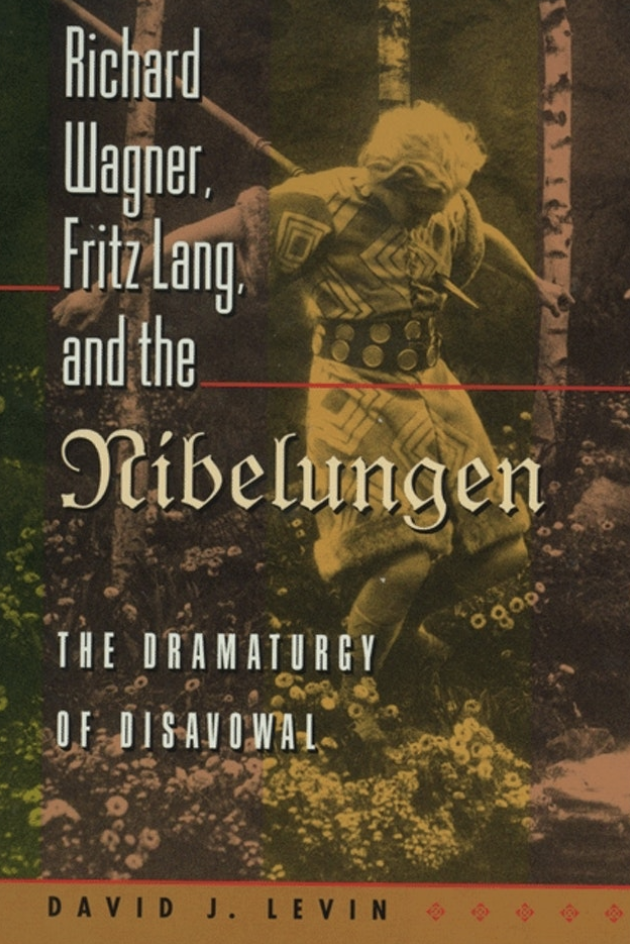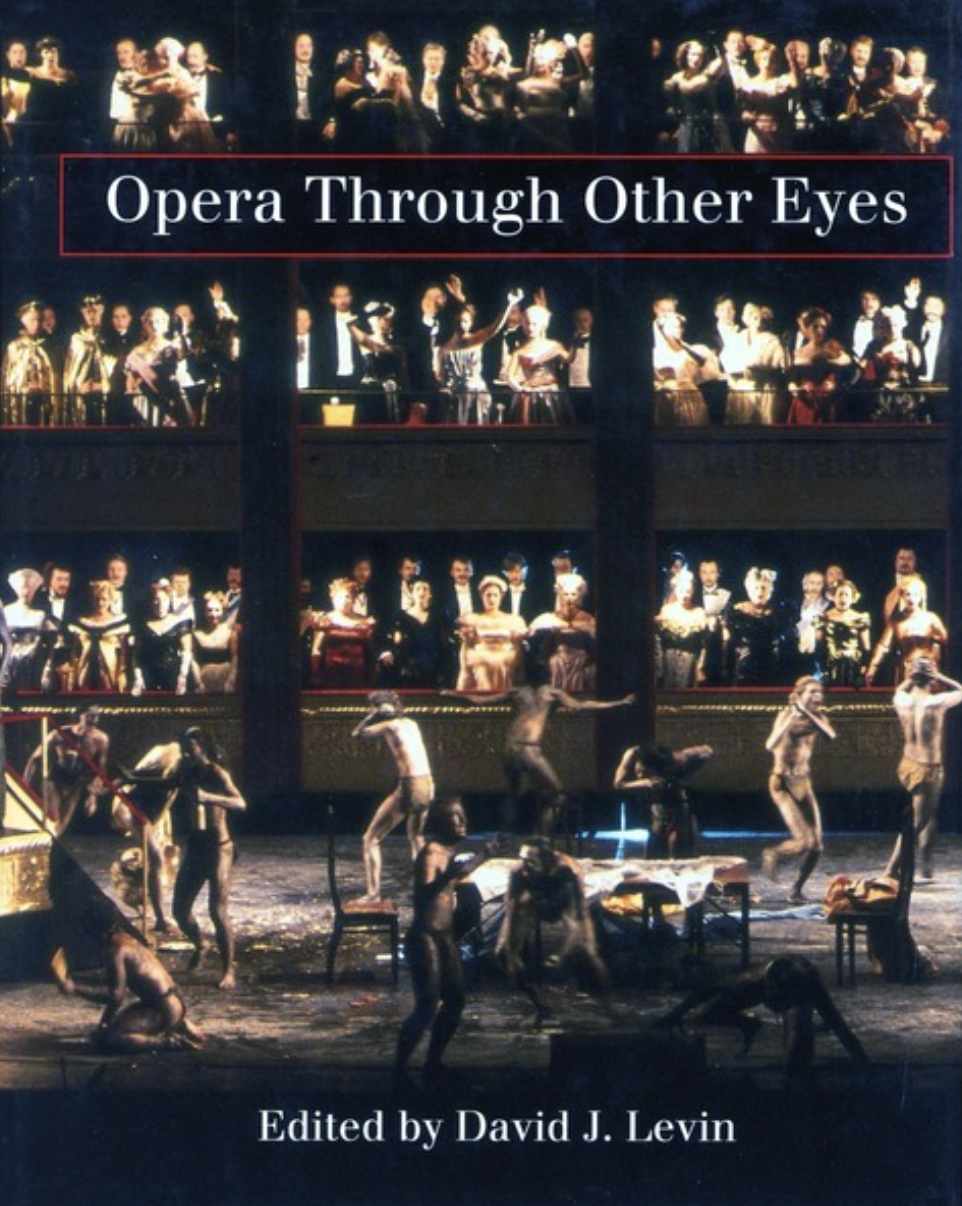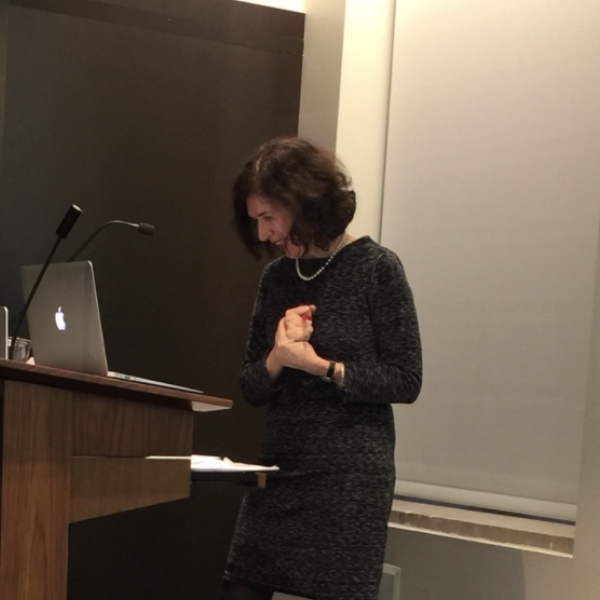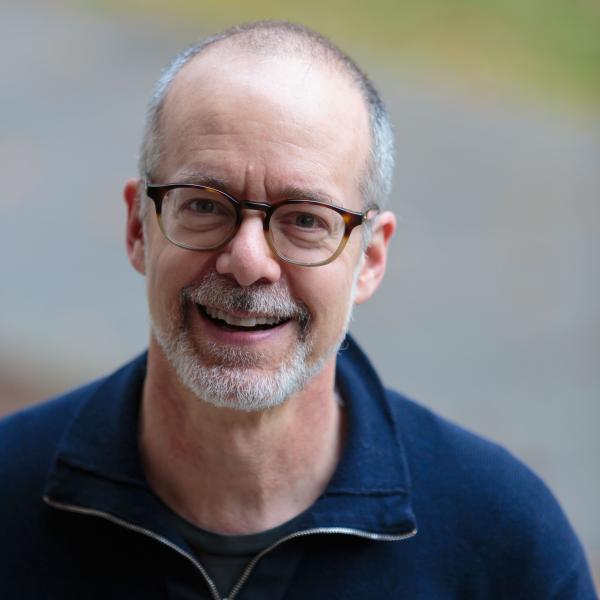
My work focuses on the aesthetics and politics of performance in opera, theater, film, and dance. I am fascinated by the interpretive work that performance does and that it occasions. I’ve written most extensively about Wagner and the stakes of staging, but my work extends to encompass a broad range of genres and periods. In addition to my academic work, I’ve served as a dramaturg for various opera houses in Germany and the United States as well for the choreographers William Forsythe (in Frankfurt) and Saar Magal (in Munich).
Additional research interests include: The aesthetics and politics of performance in theater, film, opera, and dance; the possibilities and limits of critique; how we read cultural objects; spectatorship and the history of immersion and distraction.
Intellectual Profile
I joined the Department of Germanic Studies near the end of the last century, in 1998, and am presently serving as the Alice H. and Stanley G. Harris Jr. Distinguished Service Professor of Germanic Studies, Cinema & Media Studies, Theater & Performance Studies, and the College. From 2018-2023, I served as Senior Advisor to the Provost for Arts. From 2014-2019, I served as a Visiting Professor of Performance Studies in the Department of Musicology at the University of Oslo, where I taught an annual interdisciplinary seminar on the practices of stage interpretation in collaboration with the Norwegian National Opera. For a decade, from 2005-2015, I served as executive editor of the Opera Quarterly, published by Oxford University Press; and from 2011-2016, I served as Founding Director of the Gray Center for Arts and Inquiry at the University of Chicago, which fosters experimental collaborations between artists and scholars. I have sought out such experimental collaborations since my graduate student days, working mostly in theaters in Germany, and mostly in opera and ballet. Prior to my arrival at Chicago, I was an Assistant Professor of German and Theater Studies at Columbia University. I have held guest appointments in Theater and Performance Studies at the Free University of Berlin as well as the Universities of Erlangen-Nürnberg, Mainz, and Konstanz. I am presently working on two book projects: one seeks to map out the interpretive and medial situation of opera in what I’m calling the age of its digital reproducibility; the other explores the pedagogical politics of Richard Wagner’s music-dramas, the ways that he seeks to teach his audiences through his stage works and the contents of those lessons.
Work with Students
Students working with me have prepared creative and critical work encompassing experimental theater, film, opera, solo performance, and dance; their written work has explored topics such as the theater of Frank Castorf; dramaturgies of the imagination in Lessing and Kleist; ceremony & spectatorship in Wagner’s Parsifal; music in Nazi era film; special effects in German silent cinema; love and legitimacy in the literature and cinema of the GDR; music and the imagination of the liberal subject in opera and cinema; the dramaturgy of theology in the mid-century stage works of Peter Maxwell Davies; Neoburlesque and the new generation of feminist performance; queer aesthetics and contemporary children’s cinema.
Selected Publications
- "The Gesamtkunstwerk and Its Discontents: The Wounded Voice in (and around) Alexander von Zemlinsky’s The Dwarf,” in Martha Feldman and Judith Zeitlin, eds. The Voice as Something More (Chicago: U Chicago P, 2019).
- „Natascha in der Oper: Tolstoj, Prokofjew und die Szene der Verführung“ in Krieg und Frieden: Konstruktionen von Geschichte(n). Musiktheater im Dialog IX. Ed. Hans-Peter Frings, Georg Holzer, and Clemens Risi. (Nürnberg: Staatstheater Nürnberg, 2019): 51-61.
- “Italie! Italie! Italie!? Überlegungen zur Szenischen Dramaturgie in Berlioz Les Troyens” in Krieg, Irrfahrt und Heimkehr, Musiktheater im Dialog VIII. Ed. Johann Casimir Eule, Kai Weßler, and Clemens Risi. (Nürnberg: Staatstheater Nürnberg, 2018): 60-67.
- "Adorno’s Spectacles: Strawinsky und der Ort der Dialektik" in Gabriele Brandstetter and Katja Schneider, eds. Tanz über Gräben. 100 Jahre 'Le Sacre du Printemps' (Berlin: Rombach, 2017): 275-292.
- “Der Hammer: Gedanken zu Die Meistersinger von Nürnberg und La Juive,” in: Max Joseph, annual publication of the Bayerische Staatsoper 5 (2016): 66-70.
- “Was will Die Jüdin? Gedanken zum Rätselhaften,” in Fromental Halévy: Zwischen Pessach und Te Deum. Musiktheater im Dialog IV. Ed. Clemens Risi, Bettina Brandl-Risi and Kai Weßler (Nürnberg: Staatstheater Nürnberg, 2016), 45-54.
- "Choreographieoper? Bewegung und Bedeutung in Orpheus und Eurydike von Pina Bausch" in Nicola Gess, Tina Hartmann und Dominika Hens. eds. Barocktheater als Spektakel (Munich: Wilhelm Fink, 2015), 221-232.
- Unsettling Opera: Staging Mozart, Verdi, Wagner and Zemlinsky. University of Chicago Press, 2007. (Paperback edition: 2010)
- Richard Wagner, Fritz Lang, and the Nibelungen: The Dramaturgy of Disavowal. Princeton University Press, 1998. Princeton Studies in Opera. (Paperback edition: 2000)
- Opera Through Other Eyes. Stanford University Press, 1994. (Hardback & paperback.) Edited and introduced this series of essays on opera by literary and cultural theorists, including Theodor W. Adorno, Peggy Kamuf, Friedrich Kittler, Philippe Lacoue-Labarthe, Jean Starobinski, Klaus Theweleit, Samuel Weber, and Slavoj Zizek.
Teaching
- Post-Dramatic Theater (with Seth Bockley)
- Opera in the Age of its Digital Reproducibility
- Wagner & Contemporary Critical Theory
- Wagner’s Ring in Performance (with Steven Rings)
- Introduction to Performance Studies
- Text and Performance (College Core)
- Adaptation: Cinema, Theater, Opera
- The Voice: Subjective, Material, Abstract (with Martha Feldman)
- Lohengrin Laboratory (with Majel Connery)
- Nazi Cinema
- Fassbinder: Melodrama, Politics, and the Poetics of Suffering
- Post-War German Cinema

